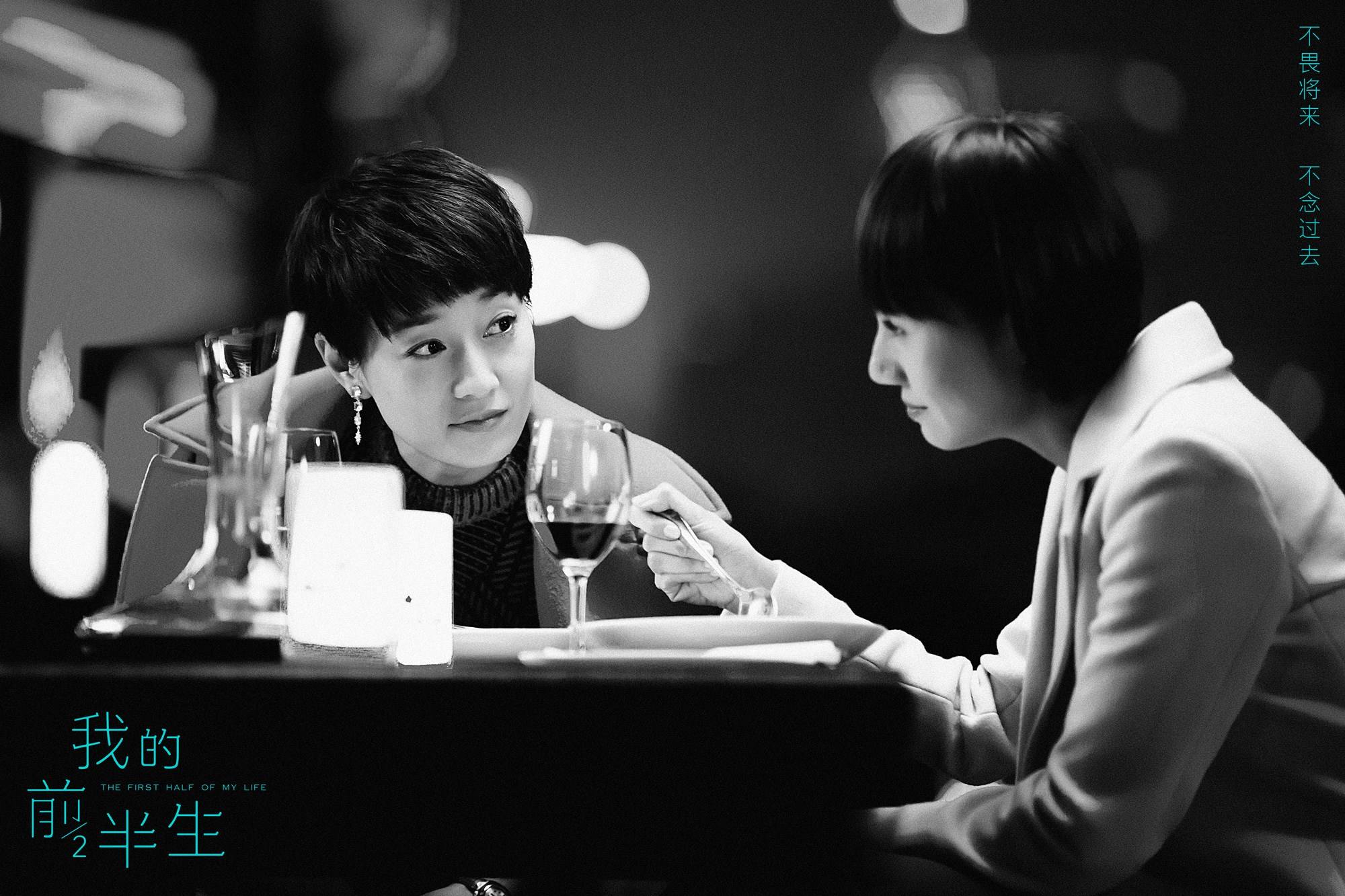By Qian Ding, CCTV.com editor
What are the most popular TV dramas in China today? My First Half of Life appears to be on the list. After its debut on July 4, 2017 on Dragon TV and BTV-1, it soon became a smash hit. Adapted from the book of the same name written by Yi Shu, a Hong Kong writer, the drama about family, love, friendship and career has turned into a hot topic for the country, and reportedly has transformed many people's perspectives about themselves.

Poster of My First Half of Life
What is the drama about?
Zijun Luo is a middle-aged housewife enjoying a luxury lifestyle. Apparently, all she cared about in her life was to dress pretty and to investigate whether her husband had cheated on her. Her husband is a diligent worker and spends most of his time at the office.
When Zijun Luo assumed her life was perfect, her husband asked for a divorce because he fell in love with another woman in the company. All of a sudden, Zijun Luo must go to work and become self-reliant. With support from her best friend Jin Tang, an independent single middle aged woman, Zijun Luo starts a new life.

Poster of My First Half of Life
Why it's so popular?
There's good acting and an interesting story-line. But what makes this drama stand out among so many love, family series would be that it's developed around a divorced woman and middle-aged woman who hasn't found her Mr. Right. It's different from the common young, pretty girl's love stories or happy marriage dramas. It's about the courage to break the status quo and live as you must.
Divorce is considered a tragedy in Chinese tradition. There's a Chinese saying " It's better to destroy a bridge than to divorce." For many generations, marriage would continue on even when the couple stopped loving each other.
China is a collective society and marriage is not only about two individuals, it's about two families. Divorce is considered a public embarrassment for both families. Due to pressures, many women have been afraid to divorce since people tell them they would never find a better man.
However, with rapid changes of society, the divorce rate in China has risen. In Beijing, China's capital, with 39 percent of all marriages ending in divorce.

Poster of My First Half of Life
Similarly, single women over the age of 27 or 30 is referred to as " Leftover woman" in China. It's believed that Chinese women should get married before 27, otherwise they can't find a good partner since they are not young anymore.
However according to statistics, the number of "leftover women" in China has gotten higher each year. It's estimated the number in Beijing alone has exceeded 800,000.
Accordingly, it's no surprise that My First Half of Life has become so popular in the country. Zijun Luo found a better self after divorce, and Jin Tang said to her fiancee that "even if you changed your heart and break up with me, I can still look after myself well. "
This kind of drama brings hope and strength to audiences, which inspires them to become more independent and brave.
Women in China today
The lives of women in China have significantly changed on account of reforms. Today's Chinese women are enjoying more rights. According to a survey, more women are college educated than before, In 2013, over half (50.7%) of enrolled students in tertiary education were women.
In 2014, 64% of women were in the labor force compared to 78% of men. However, despite high labor force participation, there are few women in Leadership roles. In 2015, women have accounted for just 17% of all senior officials, legislators, and managers in China. Only 18% of firms in China have women hired as top managers.
Nonetheless, the popularity of My First Half of Life is a sign that more Chinese women are seeking independence. As a modern Chinese saying, "My best friend is myself, it's better to be dependent on yourself than others."
(The opinions expressed here do not necessarily reflect the opinions of Panview or CCTV.com. )

Panview offers a new window of understanding the world as well as China through the views, opinions, and analysis of experts. We also welcome outside submissions, so feel free to send in your own editorials to "globalopinion@vip.cntv.cn" for consideration.
















